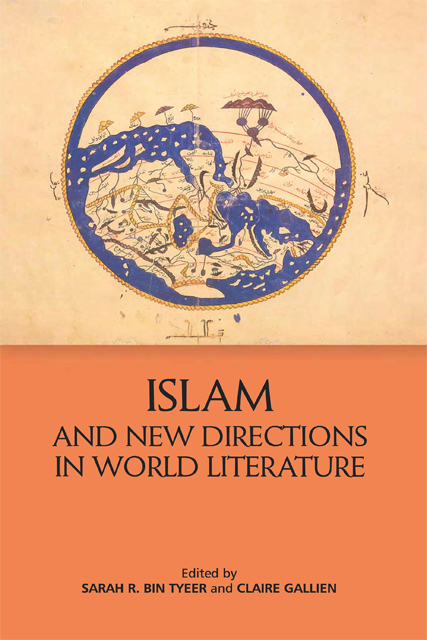4 - Poems in Praise of the Prophet (madīḥ) as a Citizen of the Literary World
Published online by Cambridge University Press: 14 July 2023
Summary
Across Muslim cultures, many Muslims celebrate the Prophet Muḥammad’s birthday, on the twelfth day of the third month of the Hijrī calendar, Rabīʿ al-Awwal, in a ceremony known as Mawlid. The festival, a public holiday in some countries, is taken as a means to teach Muslims about Muḥammad’s way of life, which they all seek to emulate. There are various expressions for this ceremony’s observance, including sharing food, attending lectures, participating in parades, and reading and reciting the Qurʾān and devotional poetry. Reciting praise poetry, al-madāʾiḥ al-nabawīyya, remains an essential part of the ceremony and the popular culture of Muslims.
Panegyric poetry or (madīḥ) has its roots in pre-Islamic literature. It had a particular style and function connected to life in the Arabian Peninsula before the emergence of Islam. After the advent of Islam, the panegyric genre did not disappear and remained a tool used by poets and rulers. Poems in praise of the Prophet appeared during his lifetime, starting with works by Ḥassān ibn Thābit (d. 674) and the famous Bānat Suʿād by Kaʿb ibn Zuhayr (c. 670). The genre continued to develop, reaching a level of maturity in the thirteenth century with Qaṣīdat al-Burda by Sharaf al-Dīn Muḥammad ibn Saʿīd al-Buṣīrī (c. 1295). Thereafter, al-Burda became pivotal in the developing stream of madīḥ poetry in different cultures and languages. This happened through numerous translations, imitations or muʿāraḍāt (pastiche) that allowed new poems to emerge. Several studies have focused on various religious and literary aspects of madīḥ in general and al-Burda in particular since its inception; only a few studies have dealt with it as a popular masterpiece but none have done so as a World Literature.
Goethe was one of the first scholars to speak about World Literature and poetry as a universal possession of humankind. His direct interaction with Arabic and Persian poetry is evident in his poem titled Mahomets Gesang (1774) and his collection titled West-ostlicher Divan (1819). Recently, there have been several studies problematising the theorisation and the eurocentrism of World Literature. For instance, Thomas Bauer and Angelika Neuwirth’s work Transformations of a Literary Genre (2005), advocating the acceptance of ghazal as World Literature, and Hamid Dabashi’s work on the Persian Epic, Shahnameh, are examples of this recent approach.
- Type
- Chapter
- Information
- Islam and New Directions in World Literature , pp. 113 - 138Publisher: Edinburgh University PressPrint publication year: 2022

